Comics aren’t dying. Comics will never die.
Diamond, effectively the only direct market comics distributor, halted all shipments, and cash flow problems caused them to delay vendor payments (they later announced a payment schedule). Numerous publishers sent creators “pencils down” messages, and the weekly comic release schedule virtually shut down. Diamond since announced a May 20th return to comic book shipment, but the damage was already done.
Make no mistake, it’s an awful situation. Many comic book stores, already notorious for tight profit margins, have been forced to temporarily close due to state and local ‘stay at home’ orders, and it’s impossible to predict how many will have the means to reopen when this pandemic finally ends. Many shops that have remained open have been forced to limit sales to curbside pickup and deliveries, and the loss of foot traffic combined with a lack of new product surely takes a financial toll. And that’s all to say nothing of the legions of fans like myself who miss their weekly “new comic book day” ritual.
Unfortunately, there’s a vocal contingency of grifters and doomsayers among comic book fans who would have you believe that the combination of these factors spells the end for comics. The grifters are arguing in bad faith, and the less said about those reactionary far-right Youtubers the better. But I’m sympathetic to well-meaning comic book fans who don’t know how else to process the shockwaves COVID-19 sent throughout the industry.
But all this needs to be put into perspective. First let’s address the obvious: the entire planet is in the midst of a highly contagious pandemic, the likes of which have not been seen in over a century. At the time of this writing, there have been over 4.92 million confirmed coronavirus cases globally, with more than 323,000 deaths.
This is exponentially bigger than comics, and the economic repercussions of indefinitely closing all “non-essential” businesses cannot be overstated. Even AMC Theatres, the largest movie theater chain in the United States, may not survive. How is it reasonable to assume that the comic book industry should be better positioned to ride out this crisis than any other industry?
Besides, the direct market is just one part of the equation. I love comic book stores, and want to see them survive and thrive. But we must remember that comics, the medium, is far older and more expansive than comics, the industry.
Scott McCloud’s Understanding Comics defines “comics” as “juxtaposed pictorial and other images in deliberate sequence, intended to convey information and/or produce an aesthetic response in the viewer.” As McCloud admits, it’s not a perfect or elegant definition, but it’s useful, and broad enough to capture the scope of the medium. It puts the vastness of comics in perspective: comics are more than 20-odd-page staple-bound magazines about big strong men who fight.
Let’s step back for a moment. Way back to ancient times, with Egyptian hieroglyphics representing an early form of sequential art. From cave etchings, to medieval tapestries, to the latest X-Men issue, humans have used pictures to tell stories. People have always had a natural inclination to make and consume art, including comics. Until our species goes extinct, we will always make and read comics.
Even if you subscribe to a narrow definition of comics that only includes “what people think of when they think of comics,” this isn’t even the first time in modern history that the comics industry has faced an existential threat.
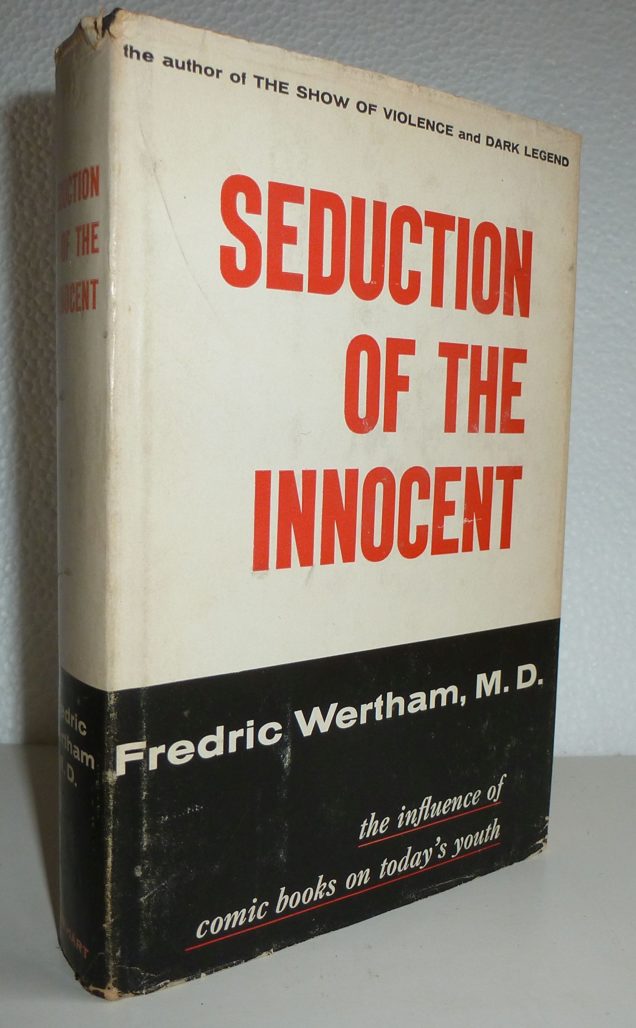
People weren’t sure if comics would survive after the bubble burst on the speculator boom of the early ’90s, either. Even Marvel Comics (yes, that Marvel) filed for bankruptcy in 1996.
And are we so short sighted that we’ve forgotten about the 2008 financial crisis already?
Make no mistake, this pandemic will change the world for generations. It’s impossible to know how these changes will take shape, but the business of comics will change too. No industry stays the same for long, especially in the arts. It won’t be easy. There will be growing pains. A decade from now, we may not be buying, or even reading, comics in quite the same way. But we will adapt, somehow. We have to. Because those of us who love comics can’t stop making or reading comics, regardless of who or what tries to stop us.
“Comics are dying” makes no more sense than “music is dying” or “poetry is dying.” Comics are art. Art doesn’t die. Comics aren’t dying. Comics will never die.


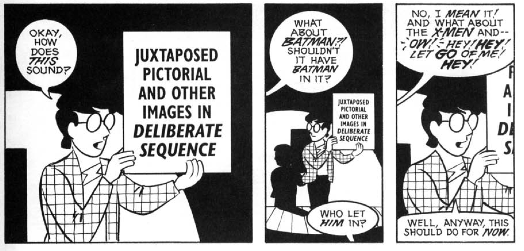
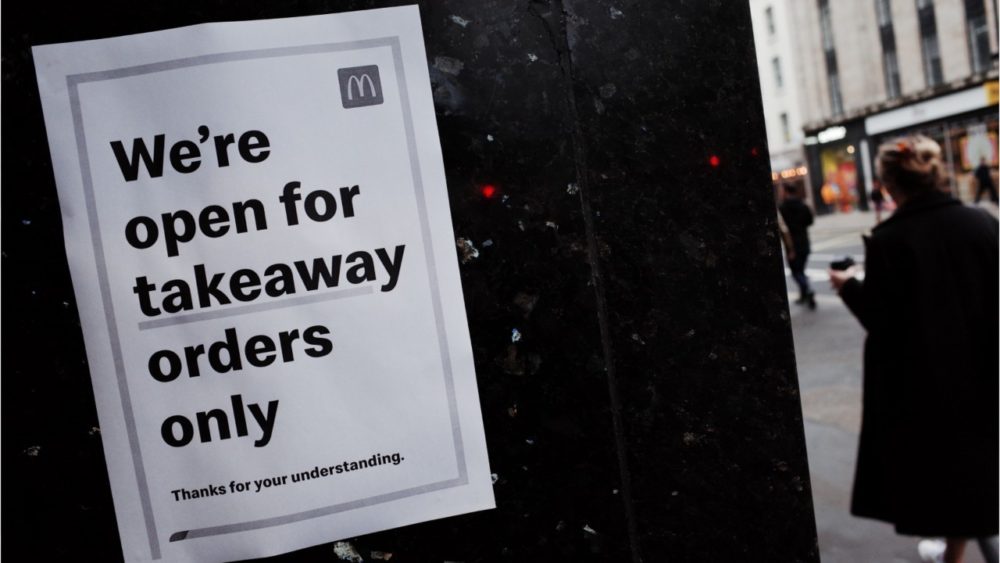
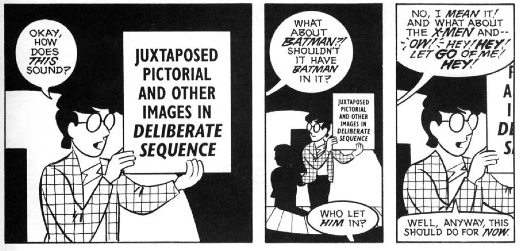

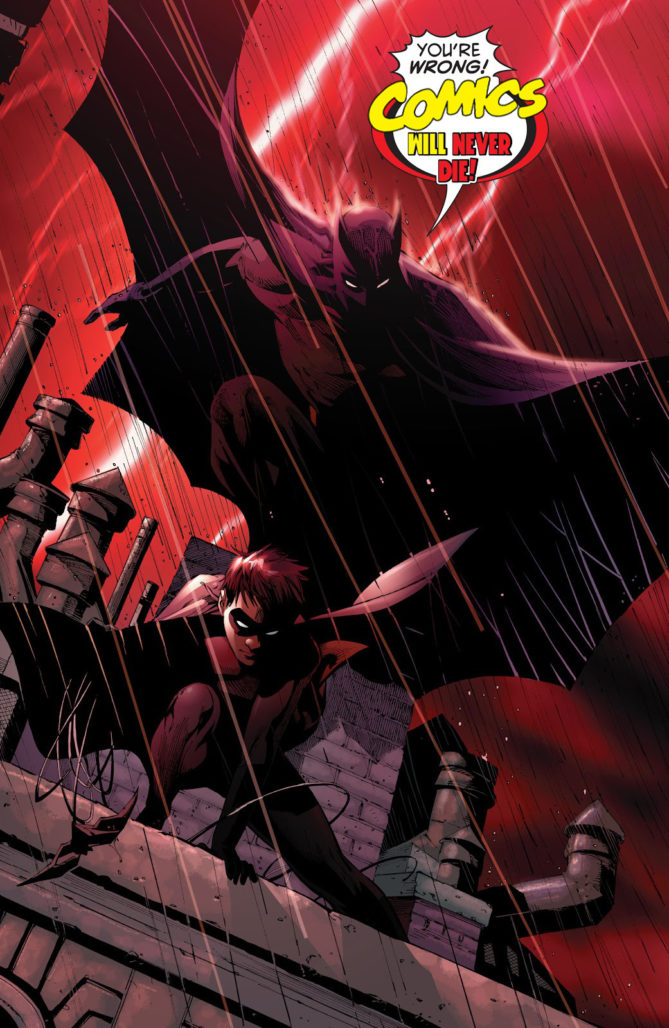

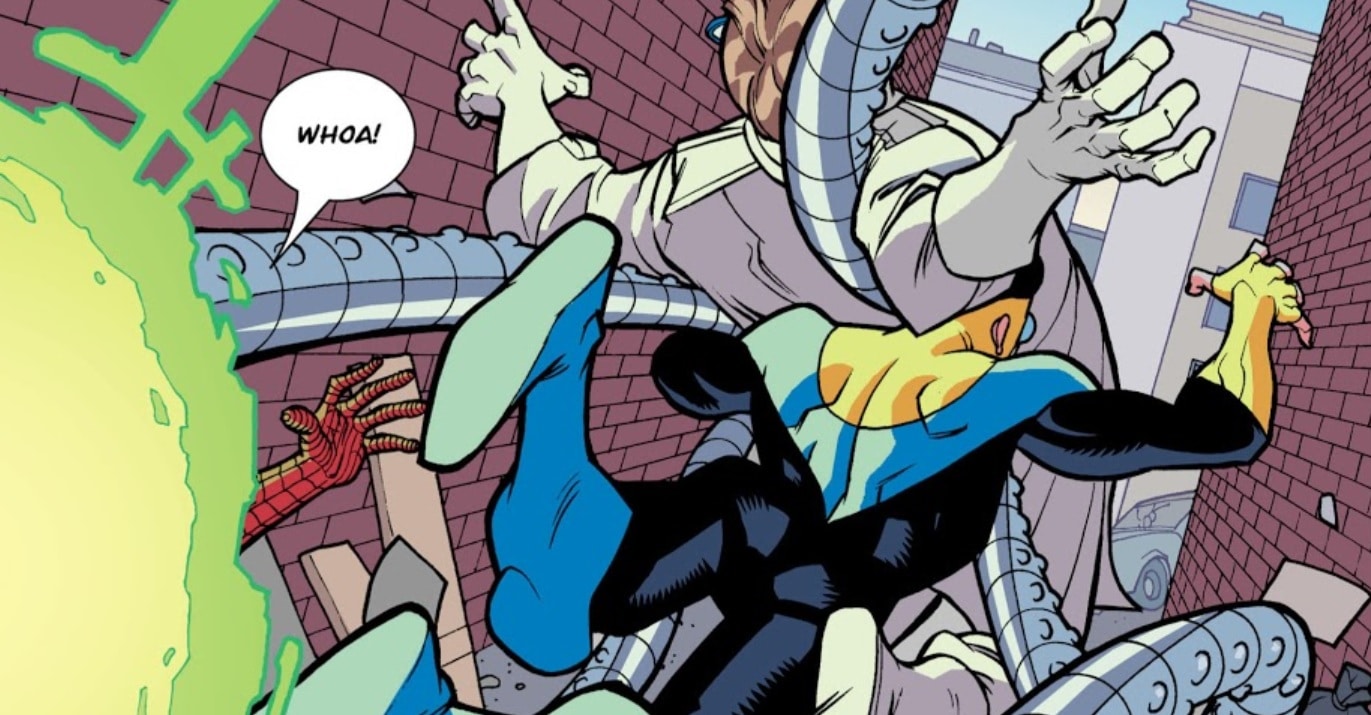



HECK YEAH! This! Forever this.
And also, the USA is like 4% of the world population, Bande dessinée and manga everywhere else where the distribution system is not a clusterf*ck we’re doing just fine thank you.
“The grifters are arguing in bad faith, and the less said about those reactionary far-right Youtubers the better.”
And yet, I’ll bet every one of them offered more reasoned and logical analysis of the current crisis than this post, which spends a lot of words to ultimately say nothing but “Comics won’t die…BECAUSE!!!!!”
And it’s hilarious to end with a reference to “poetry is dying” considering that poetry is, essentially, dead as a mainstream business and art form. Here’s a link from the UK, https://thebookstewards.com/the-problem-with-poetry/, which states that British book sales in 2017 totaled 3.7 billion pounds while poetry sales in 2019 were at an ALL TIME HIGH at 12 million pounds, making up about .3% of the print market.
That’s not three percent. That’s three-tenths of one percent.
Yes, people will always make comics and, yes, there will always be some people able to make some sort of living at comics, just as I’m sure there are some out there still paying their bills with poetry. But the Direct Market has coddled and supported thousands of creators over the last 40 years and it it goes away, a lot of people are going to get their eyes opened about what life in the mainstream market is like.
Mike
Where is the analysis?
I think one thing that is keeping a lot of people dancing around the truth is that they would rather die than admit the people who had been calling the “Comic Industry” a slow motion train wreck were right. The virus will not kill comics, the “Comic Industry” will kill the “Comic Industry” which is not the same thing.
Comics may not be going to die, but how they will survive remains the question. Remember even before this hit many older fans had severely curtailed buying due to bad storylines, character miss-use and endless event/stunts. Local comic book store got to open up again last week and I went there, but only to skip through the back issue boxes. At the moment I can’t imagine any storyline that will get me to pay out 4.99 for a full issue that will most likely just be one part of a larger story that will be cast aside and forgotten in a year or so.
I’m in Michigan and am currently one of the thousands of affected residents dealing with a flooded basement. Comics may never die, but paper comics are dead to me as of now.
This seems like an awfully silly mix of pedantry and strawmannery. When people express concern that COVID-19 could kill “comics”, they don’t mean the medium, they mean the industry.
I’m with Thad.
The medium will survive.
…But we’re getting closer to an age where the only ones making money off of comics will be creators and those with ownership of popular intellectual properties (Batman, Spider-man, etc…).
…Unfortunately, it seems the days are numbered for physical comics and those involved in the distribution/sale of physical comics.
How has this shutdown affected digital comics? Has Comixology gotten a boost during the quarantine, as people weren’t able to go to the comics shop?
The medium of comics will survive in some form. But if we’re talking about a periodical market dominated by two big publishers owned by movie studios, with the wares sold mainly in comic shops — who knows how much longer that will survive.
Last news I heard about AMC were that (1) it won’t reopen its theaters until there are new movies to show, which won’t be until July at the earliest; and (2) Amazon is in talks to buy those theaters.
Silber is correct that comics go through boom-and-bust cycles, which tend to happen every 20 years. When Stan Lee became Marvel’s publisher, he moved to get the characters into movies and TV shows, because he felt another major downturn — like the one in the ’50s — would take down not just Marvel but the entire comic-book industry.
That hasn’t happened, but Stan’s dream of Marvel movies and TV shows did come true. And without those movies and shows, and merchandising, it’s doubtful the company would be around now. Marvel and DC certainly aren’t surviving on comic-book sales.
I’ve said this before, but I seriously doubt comic periodicals will be around much longer. They provide the least value for your money out of any medium of entertainment. I long ago gave up on superheroes in comic book form, but I remember a moment from over a decade ago where I was talking about “Superman: Red Son” to a fellow hanger-outer at the bookstore that I frequented. When I mentioned the price, he was like “There better be some damn good story on those pages.” And that was for the trade.
I recently checked out those new comics that were placed in Walmart. Well, there was that one title (starring that girl) that I was kinda-sorta interested in, and I flipped through it, but it had a $4+ price sticker on it, so I passed. Definitely not worth it for 24 pages.
Well you sure convinced me! (Not really) Saying ‘because” is terrible writing.
I’m really confused about people being determined that comics on paper are on their way out, or suggesting that comics provide the least value for money of any (any!) entertainment form. If that really is your opinion, then I’d suggest trying out some different comics for a change, because to me, it just sounds like you’re in a rut. That’s not a reflection on comics, but on your buying habbits. Yes, eating pizza every day is boring.
I do agree that there are plenty of comics out there that just do not have the staying power or audience to really ‘qualify’ for continuous single issue release, and it would benifit the industry if more characters or series switched from floppie-first to graphic-novel-only (or, granted, mercifull oblivion in some cases…) The fact that both Marvel and DC have switched to this format for some series seems to confirm this.
Changes need to be made, and may be long overdue, but I still think there is enough of an audience out there to make the comic book industry a worthwhile financial endeavour. Comparing consumer goods produced in 21st century America to a language notation system from ancient Egypt may be completely useless from a practical standpoint (for I cannot picture an ancient Egyptian wondering when the next papyrus of Batglyph will be available, or wondering wether the rivier turning red or all firstborn sons dying will affect distribution.) Comparing the indirect but omnipresent threat of a virus outbreak (with restrictive measures applying to all non-essential industries) to the direct and focused threat of a congressional hearing (resulting in restrictive measures aimed directly at the American comic book industry) may be evidence of the author looking for just any ‘previously conquered threat’ without once again checking if there is any applicabillity to the current situation at hand.
Following the Wertham thread though, it could even be argued that this ‘previously conquered threat’ is partly to blame for the current condition. Publishing companies bowing down to the restrictive measures of the Authority Code made sure that for decades, comics could only be perceived as juvenile and cheesy publications of limited ambition, for there was not a lot being published, however charming, to contradict that opinion. So here we are, decades later, still with the idea in our head that comics equals super-heroes. But they don’t, and each day that passes, the percentage will shift. The only problem is, that a large part of the industry is caught in the outmoded distribution system of the Direct Market, with all bad habbits (and continued super-Hero fixation) attached. There is nothing wrong with the Direct Market, but the habbits will have to change, for everybody.
Plenty of people still like comics on paper. Plenty of people still like to go shopping. So there is no ground to argue that it will be impossible for other people to make money distributing or selling comics. Now the trick is for the people who sell comics, to have stock of comics printed on paper that the people who still like to go shopping would actually like to buy, available on a location that these people who still like to go shopping, could and would visit frequently….. Now there’s a puzzle!
So yeah, I was dissapointed by this article, not because I don’t agree with the author’s opinion, but because it doesn’t present it’s case very well. It pretends to take a step back and look at the broader picture, when In fact it only rehashes some tired old tropes of common-percieved comics history. To make a true analysis (and that’s what the click-bait-title of the article seems to suggest this is) of the current situation and to determine wether comics will indeed soon die, a little more journalistic endeavour is called for.
Yes, comics will survive as an art form, but they will be even more niche than before. The young don’t care about them. It’s the love from the older fan who grew up reading them that is keeping it going and they were forced out by crap writing and identity politics. Making a living doing a comic will be gone or tougher that it is now. Must be why Marvel has a lot of third world creators to do the work at lower prices. Comics, or the Titanic, hit a small iceberg just now and is still staying on the same course it was on till a bigger one hits it harder. Geppi is clueless and his lame out distribution STILL can’t pack comic boxes like they care.
“Identity politics” … LOL.
What’s that supposed to mean?
Stores may close, but the Crowdfunding Market is taking off and making some incredible, original things.
What’s really killing the comic book industry is all the crazy liberal writers. They have alienated a hell of a lot of people.
Comments are closed.